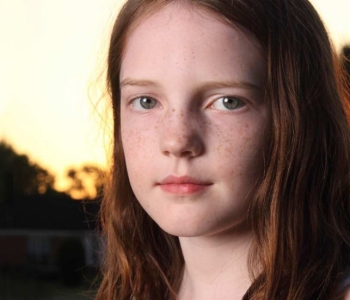My Teenage Daughter Hates Me — Send Help!

Raising a teen or tween can be trying at times, but there’s little that can feel more soul-crushing than thinking, "my teenage daughter hates me." This is the kid you’ve made every kind of sacrifice for, the one you’ve shaped your life around, the one you cherish more than you ever thought it was possible to love another human being. And this is what you get in return?
It might feel like the absolute worst, but before you flat-out decide you’ve failed as a parent (spoiler alert: you haven’t!), it’s worth noting that hearing your girl say she hates you can be a sign that you’re doing something right. “It’s easy to forget, but growing up isn’t exactly easy,” says Girl Scouts’ Developmental Psychologist, Dr. Andrea Bastiani Archibald. “Your daughter is dealing with uneven social dynamics, changing hormones, and trying to make sense of who she is in our imperfect world. It’s only normal that she might feel annoyed or angry sometimes, as we all probably did at this stage of the game!” Add to that since adolescents are still developing on an emotional level, most of their feelings are of the extreme variety. “Almost everything is black and white,” says Dr. Bastiani Archibald. “They love things. They hate things. Teenagers have never exactly been known for their nuance or ability to temper their feelings.”
But why is all of this venom being directed at you, and how on earth is this a good thing, you might ask? “People often take out life’s frustrations on the people they feel safest with—the ones they know will stick with them and support them even if they do act out every now and then,” says Dr. Bastiani Archibald. “And while friends at this age can be fickle, you’ve always been there for her—despite a disagreement or temper tantrum here and there. Whether she realizes it or not, she trusts that you won’t disappear on her if she lets some of this frustration out on you.” In other words, when she says she hates you, she’s also saying you’ve made her feel secure enough and have given her a safe space of sorts to release some of the pressure she’s been feeling.
So, yes. Even though it’s really crummy and painful to hear think your teenage daughter hates you, you should take it for what it most likely is—normal, and not entirely about you. Phew.
That said, her frustration probably is related to about you on some level, so take a minute and think about why that could be. “When she was little, you were her whole world,” says Dr. Bastiani Archibald, “but adolescence is a time of big changes, experimentation, and branching out. It’s common to feel a little hurt by any distance your child is creating as she makes new friends and explores life’s possibilities, and it’s also common for parents to want to shield their children from making what they see as mistakes. Whether you mean it that way or not, this can come across as limiting or controlling to your child, and can lead to feelings of resentment as she tries to spread her wings.”
One thing that can help with this is to calmly (and with an open mind!) discuss conflicts with your daughter as they arise. Listen to her point of view and explain yours as well, rather than just saying, “no,” or “because I’m the parent.” Hearing her out, respecting her point of view, and being flexible when you can, will go a long way in calming what could otherwise be a heated situation.
“As much as you want to keep her from decisions she might regret later on, it’s actually important to let your girl make many of her own decisions, take some risks and even make a few mistakes here and there,” says Dr. Bastiani Archibald. You might not like the band she’s spending all her allowance money to go see—and know she’ll be upset when she’s out of cash next week—or have mixed feelings about the haircut she wants to get, but those things won’t really matter in the long run. What will matter is that she feels heard, respected, and supported by her parents as she grows into her own person with her own interests, passions, and opinions.
“Keeping an open dialogue and letting her know that you really are considering her wants and needs will help you out a lot when it comes to issues that may put her health or safety at risk,” says Dr. Bastiani Archibald. “It’s really a matter of choosing your battles. If you show flexibility and understanding when you can, she’ll be more likely to understand when you can’t, and understand that you’re not trying to punish her by setting certain rules.”
The bottom line is that even if your daughter says she hates you (and maybe she thinks in the moment that she does), what she’s probably really saying is that that growing up can be kind of rough. So take a deep breath, try to remember your own teen years, and remember that this, too, shall pass.





